Supacell Review: Netflix’s New Defenders? A Group Of Mutates Symbolizing The Drift Of The London Suburbs
Cast: Tosin Cole, Adelayo Adedayo, Nadine Mills, Eric Kofi-Abrefa, Calvin Demba and Josh Tedeku
Director: Sebastian Thiel, Andrew Onwubol
Streaming Platform: Netflix
Filmyhype.com Ratings: 3.5/5 (three and a half stars)
Supacell is the right series for those who love superheroes but above all those who break away from clichés both in terms of characterization and themes. Created, written, and directed by the British rapper Rapman, Supacell guides us in South London, among the minorities who are increasingly the last wheels of the wagon, introduces us to a group of men and women who will have to deal with unpredictable superpowers and a future that it bodes rather darkly for all humanity. Between fights, street gangs, mysteries, and enemies in the shadows, there will be no shortage of excitement and puzzles. Thanks to the rapid and drastic decline in the quality and appeal of the MCU, it’s easy to believe that superhero stories have had their day: yet, a TV series, Supacell, may have arrived on Netflix that has something to say about it. Directed by the rapper, it has its roots in the streets of South London but has its finger on the pulse of contemporary entertainment, using the framework of superpowers to tell a very specific story about the experience of the black community in the British capital.
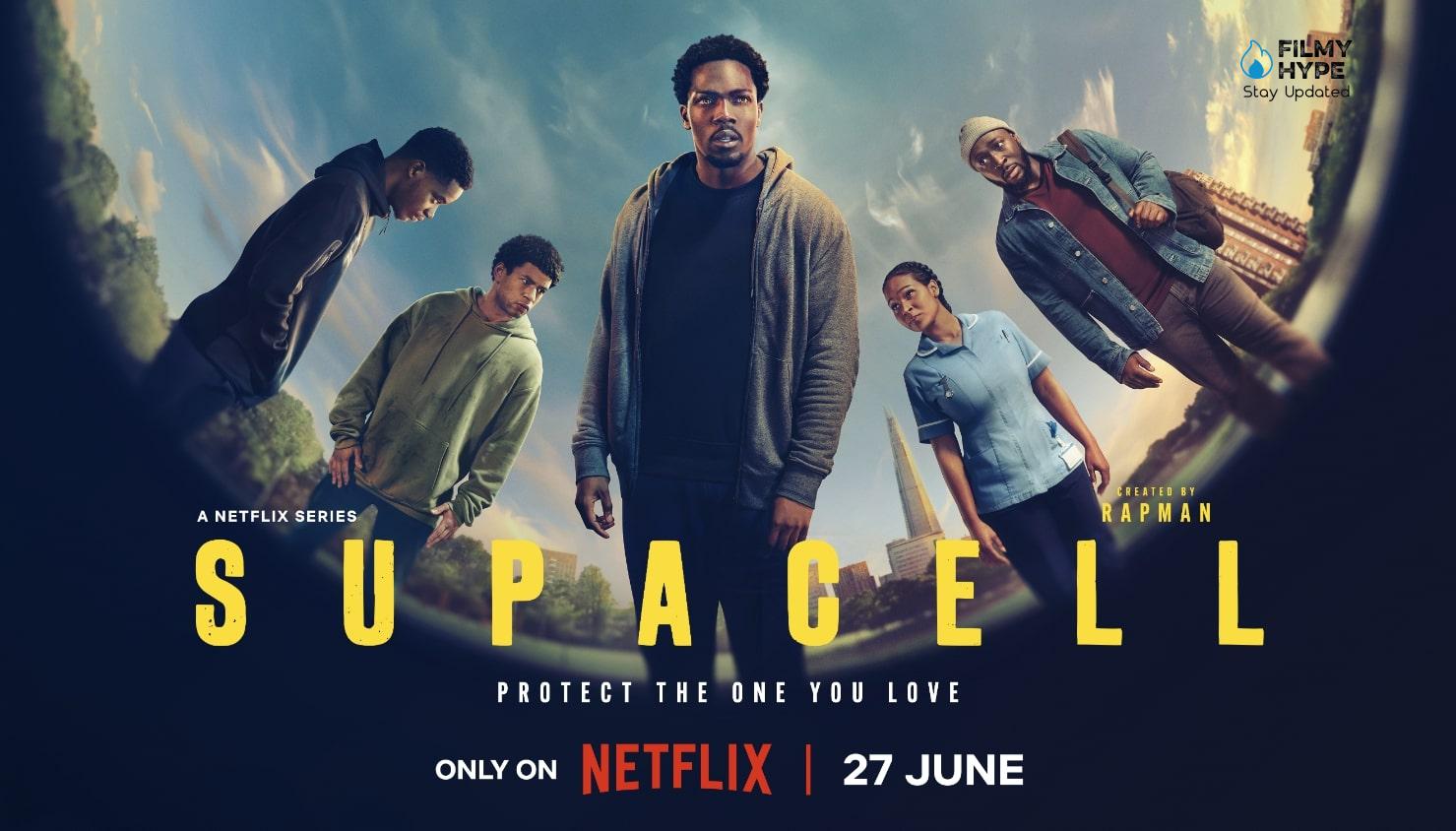
Something is moving. Slowly, but it moves. In the organic whole that is streaming, not everything deserves our attention: title after title, film after film, series after series. We have written and said it many times: we live in an era in which there is a continuous supply of products, often of poor quality. For this reason, when one comes across a moderately interesting title, the desire to discover the catalogs, observing them as a source of sensible entertainment, and not just as a distracted pastime, returns. It then happens that titles like Supacell, developed by Andrew Onwubolu alias Rapman (producer, record producer, rapper), can make us stand up. Ultimately, it is an objectively interesting series in its development, which dares to tackle a genre that has attracted the public’s attention more than others in recent years. As we’ll see in our review of Supacell, director Rapman manages to create a film that combines the visual appeal of a Marvel movie with a story that’s rich in depth and substance. What sets Supacell apart from the superhero crowd is the seriousness with which he treats his fantasy material: the cinematography and special effects are excellent, but what stands out is the narrative, which tackles issues like racism and gang-related crime, issues that plague many working-class communities.
Supacell Review: The Story Plot
Supacell takes us into the lives of a series of people who are in theory completely normal, even if their lives are unfortunately not that different from each other. Tazer (Josh Teduku) is a young member of one of the many youth gangs that nowadays make several parts of London incredibly treacherous places. He ended up in hospital after being stabbed. Then there is the young Dionne (Adelayo Adedayo), who juggles work and an unsatisfactory relationship with a local crime boss and who discovers, like everyone else, that in moments of greatest stress or danger, her powers emerge uncontrollably to protect her. Even Michael (Tosin Cole), who works as a delivery boy, comes to the same conclusion the powers save his life but also leave him full of doubts about the motive and reason for which he possesses them. In that urban undergrowth, there is also Andre (Eric Kofi Abrefa), an ex-convict who to pay his wife’s maintenance accepts virtually any type of job but does not seem to find his way, in a context often made of degradation and poverty, which even the young drug dealer Rodney (Calvin Demba) must face in his own way. He realizes that he has a gift of super speed which naturally leaves him, like everyone else, confused and in the grip of panic.
All of them have one thing in common: they are coloured, and they represent that particular minority segment of African origin, which in 21st century London continues to have to fight much more than others to have their own economic independence or to get out of substantially dramatic situations. hereditary without any help. From the beginning, therefore, Supacell presents itself as a perfect example of a product linked to the old concept of blaxploitation, that cultural phenomenon which in the 70s generated a modern myth like Shaft, the declination of the noir and crime genre for the Afro audience. This time, however, it’s about superheroes and you don’t need to be too knowledgeable on the subject to find huge connections not only with the many Marvel protagonists such as the X-Men or the Avengers, but with their colleagues from DC Comics, but also with a series that made history as Heroes. The final result, however, is not so predictable or standardized to the clichés of the genre, for Rapman, by embracing above all the concept of an independent product, of a B-movie, it moves with a decisive step towards the metaphorical narration of the dramatic situation of the London suburbs, of England post-Brexit.
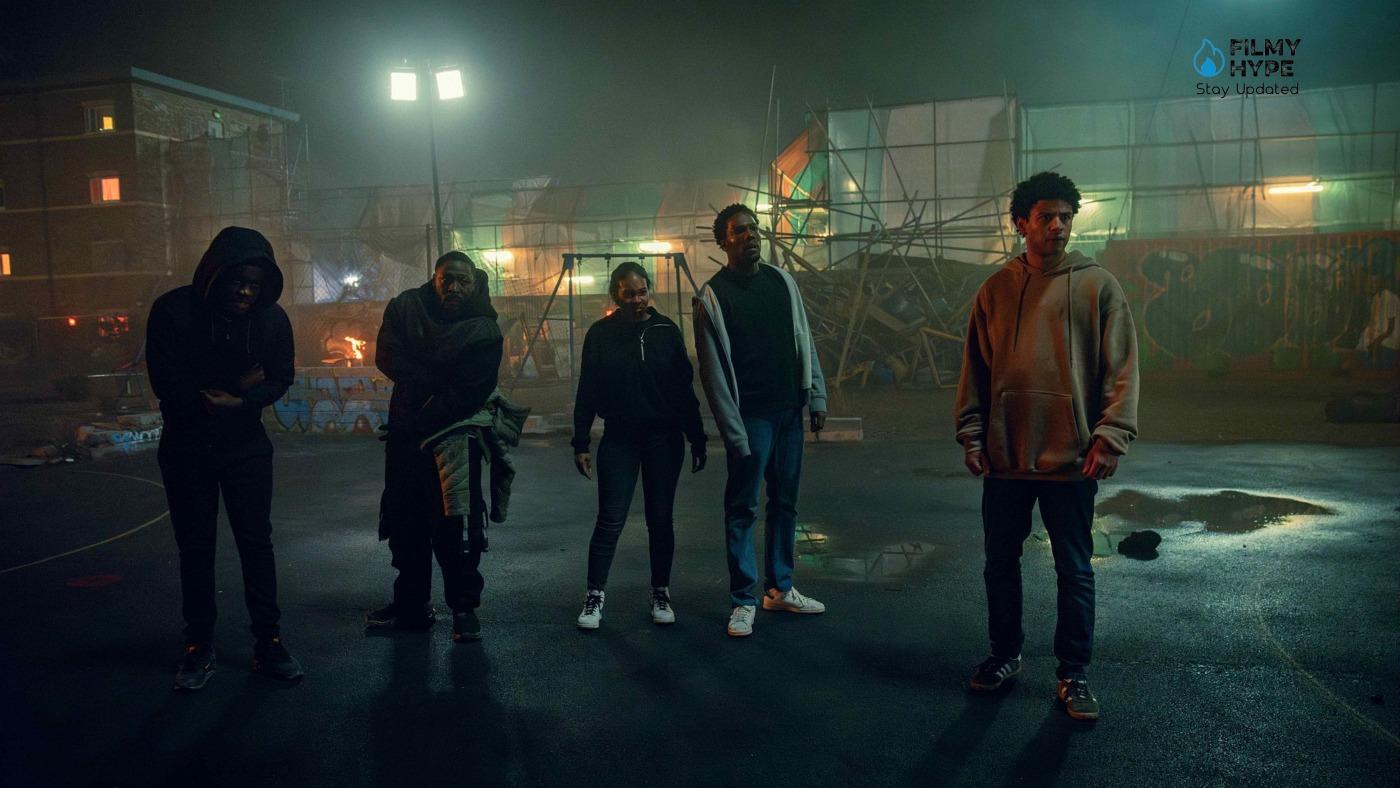
The series, after a violent opening, takes us to South London. At the center, is the intersecting story of the protagonists: Michael, Tazer, Sabrina, Andre, and Rod (played by Tosin Cole, Josh Tedeku, Nadine Mills, Eric Kofi Abrefa, Calvin Demba). They don’t know each other, but their paths overlap when each of them discovers – suddenly – that they have power. Very different from each other, the five lead a life in total resistance to a complicated and not very condescending world: a nurse, a drug dealer, a single dad, the leader of a gang, a placid courier, who doesn’t want anything else other than to marry his girlfriend Dionne (Adelayo Adedayo). Therefore, a very varied corollary, which then reflects the peripheral dimension of a metropolis like London (and if we include the contemporary crisis, the series can also be considered political).
The latter, Michael, will somehow have the burden of carrying forward the established plan: capable of looking into the future, he discovers a terrible threat that is about to strike London. He will have to accept the powers (just as the others will have to do) and try to anticipate the imminent danger (fully taking on the style of the classic Marvel-style superhero). Meanwhile, still in the city, “a peak in missing people” keeps the police busy. There seems to be a bigger plan behind it, a conspiracy (perhaps with the usual secret association, fleetingly introduced already in the incipit), which leads Supacell to deal with an atmosphere a bit like Stranger Things and a bit like X-Men, with a hint of Top Boy.
As Michael lies bleeding on the ground, his eyes begin to glow yellow and he disappears into thin air. He finds himself reliving the same events, only this time Tazer lets him walk away unharmed. Michael, after convincing himself that what he experienced was an extreme case of deja vu or a bizarre dream, asks Dionne to marry him and she accepts. During a passionate moment in their apartment, Michael’s eyes light up and he disappears again. This time he lands in what appears to be a post-apocalyptic London and comes face to face with what he believes to be his double, but who is himself in the future? He and four allies are engaged in a battle with hooded adversaries.
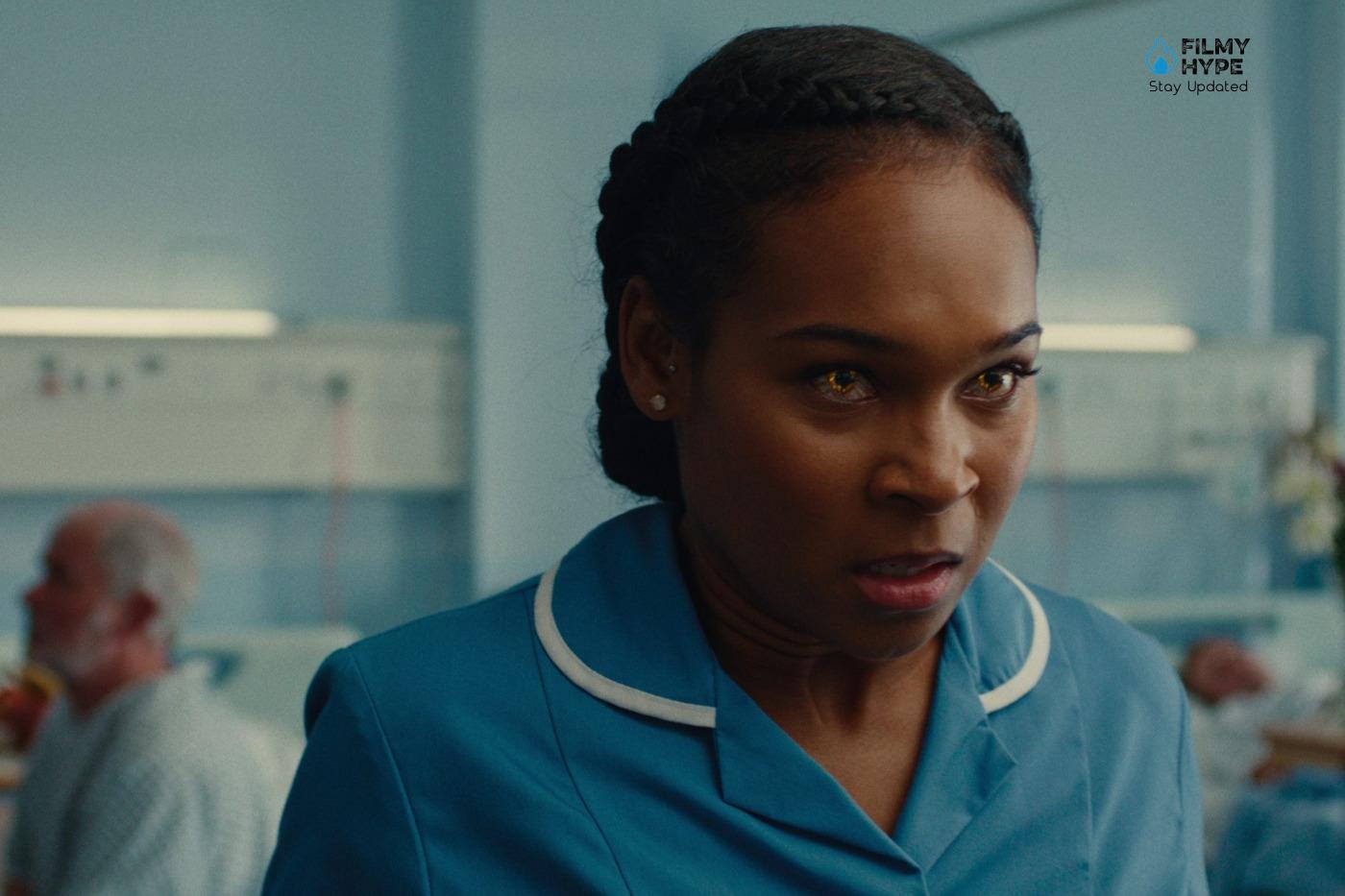
Future Michael tells present Michael that he has the power to travel through time —and even freeze it—and that he’s jumped forward three months. He then whisks him away to show him Dionne’s grave. If he wants to save her life, he must go back and find his four future allies. We’ve met them before, and we know that they too have unique superpowers: Sabrina (Nadine Mills), a telekinetic nurse; Andre (Eric Kofi Abrefa), a struggling call center worker with incredible strength; Rodney (Calvin Demba), a small-time drug dealer who can run incredibly fast; and none other than Tazer, who can turn invisible—which comes in handy when he and his gang are outnumbered by a rival gang.
Supacell Review and Analysis
Supacell uses his mutants or supposed mutants to tell us about the very difficult English social situation, so he does it with Eddie Marsan in the role of the mysterious villain, to represent the white part of society, the one that uses and then throws away the lower social classes. A good half of the protagonists wallow in crime or have to deal with it, the other half fights every day to survive injustices and a system that deprives them of any possible legal alternative with which to survive. The beginning of the series is quite explosive, there is a clear dose of violence, realistic but not excessive, it talks about parallel realities and time shifts, of rather disturbing and not very serene futures, and the individual powers appear above all a sort of metaphor of the existential condition of the individual protagonists, of what they represent in the eyes of society. Supacell sometimes exaggerates, however, by taking itself a little too seriously, in trying to give more than verisimilitude, a sort of realism to the whole, an element that damages the atmosphere and is often weighed down by dialogues that are not very well managed.
However, the narrative progression is interesting, there are some nice twists, and the characters are above all well well-characterized according to the principle of ambiguity. It is not said that they become superheroes, they could also use in a negative (but not incomprehensible) way those powers that have been given to them some of them already do it. Supacell therefore, while re-embracing the superpower as a super-responsibility, as a personal choice, manages to convince us that, if you are broke, after all robbing an ATM is not the first extinguishing idea that any of us would take into consideration. Is it a very Jeeg Robot? Yes, indeed yes, this could be defined as the Jeef Robot in English sauce, there is the stench of the street, there is the parody but also the homage. The first season was promoted albeit with some reservations, now it remains to be seen whether the whole thing will continue, or if perhaps it will become yet another product hastily canceled by Netflix, which this vice even in 2024, in which it had announced it wanted to do more quality and less quantity, it doesn’t seem to want to lose.
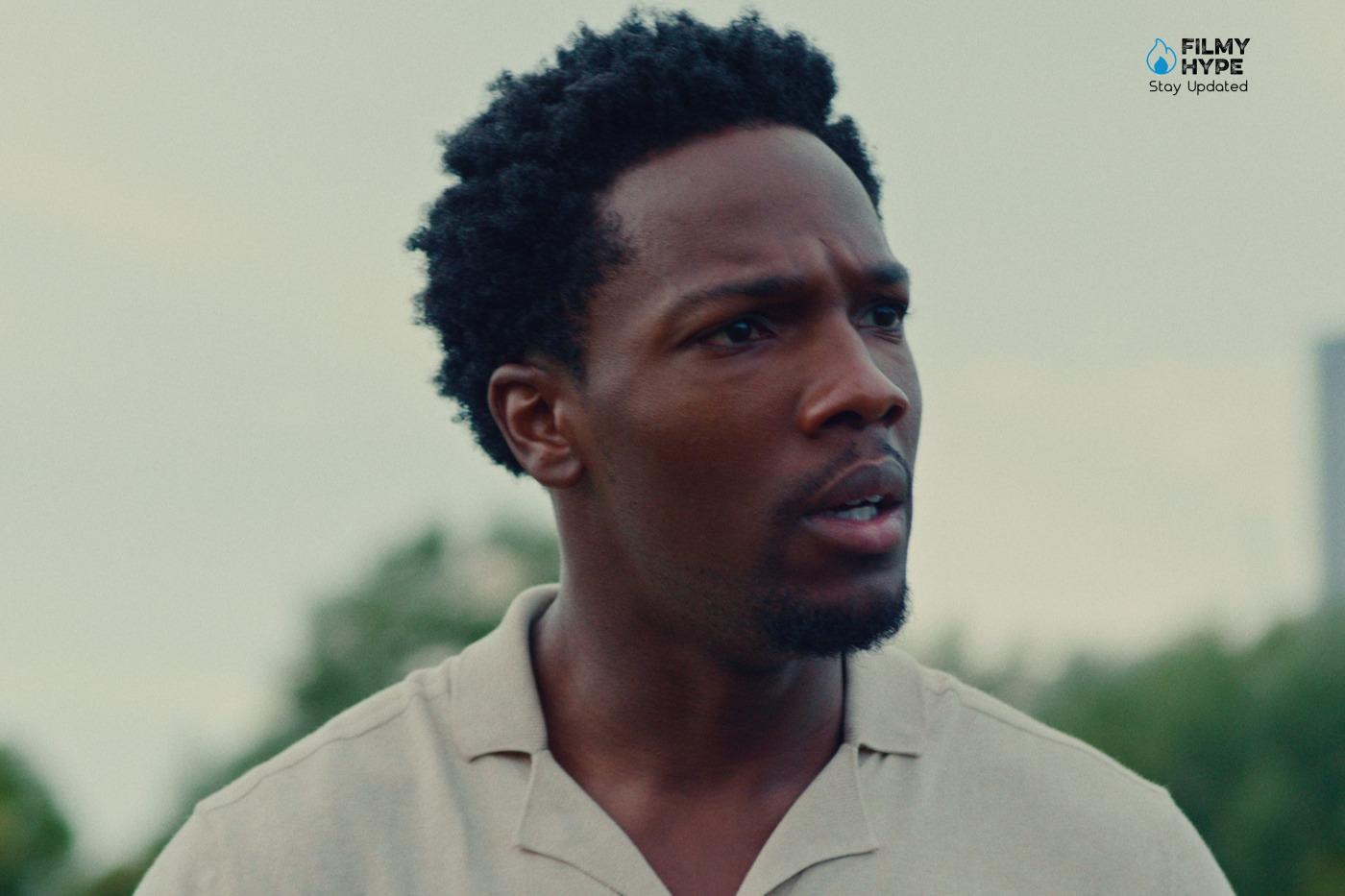
With this team of unlikely heroes, Supacell stands out not only for its spectacular action scenes but also for its ability to explore complex social issues, making the series not only a superhero adventure but also a powerful commentary on contemporary reality. The most fascinating aspect of Supacell is precisely this ability to balance the fantastic element with a narrative rooted in reality. The protagonists’ superpowers are not only narrative devices, but tools to explore complex social issues: they become powerful metaphors for the challenges and struggles they face in their daily lives. Rapman, with his incisive direction and brilliant writing, manages to create a world in which the ordinary and the extraordinary blend perfectly. The action scenes are masterfully choreographed, maintaining high tension and adrenaline, while moments of introspection and personal drama add depth and authenticity to the characters.
Supacell is a vivid and passionate portrait of a community and its struggles, which uses the universal language of action and adventure to tell stories of resistance, hope, and courage. In a television landscape saturated with superhero productions, Supacell emerges as a fresh and meaningful work, capable of entertaining and making us think at the same time. The first element that stands out in Supacell is the representation of the characters as totally normal people. In many superhero films, especially in the Marvel universe, there is a tendency to individualize the heroes, sometimes alienating them from everyday reality. Unlike Tony Stark, Peter Parker, or Steve Rogers, these mutants experience the problems of “common” life: Andre has financial problems and can’t find a job because of his criminal record, Sabrina hopes to get a promotion as a senior nurse, Rodney is rejected by his family and tries to earn the necessary money by being a drug dealer. Furthermore, in Supacell the characters seem to come from very different social backgrounds. This is already noticeable when comparing the reality of gang rivalry that Taser lives and the quiet and comfortable city life of Michael.
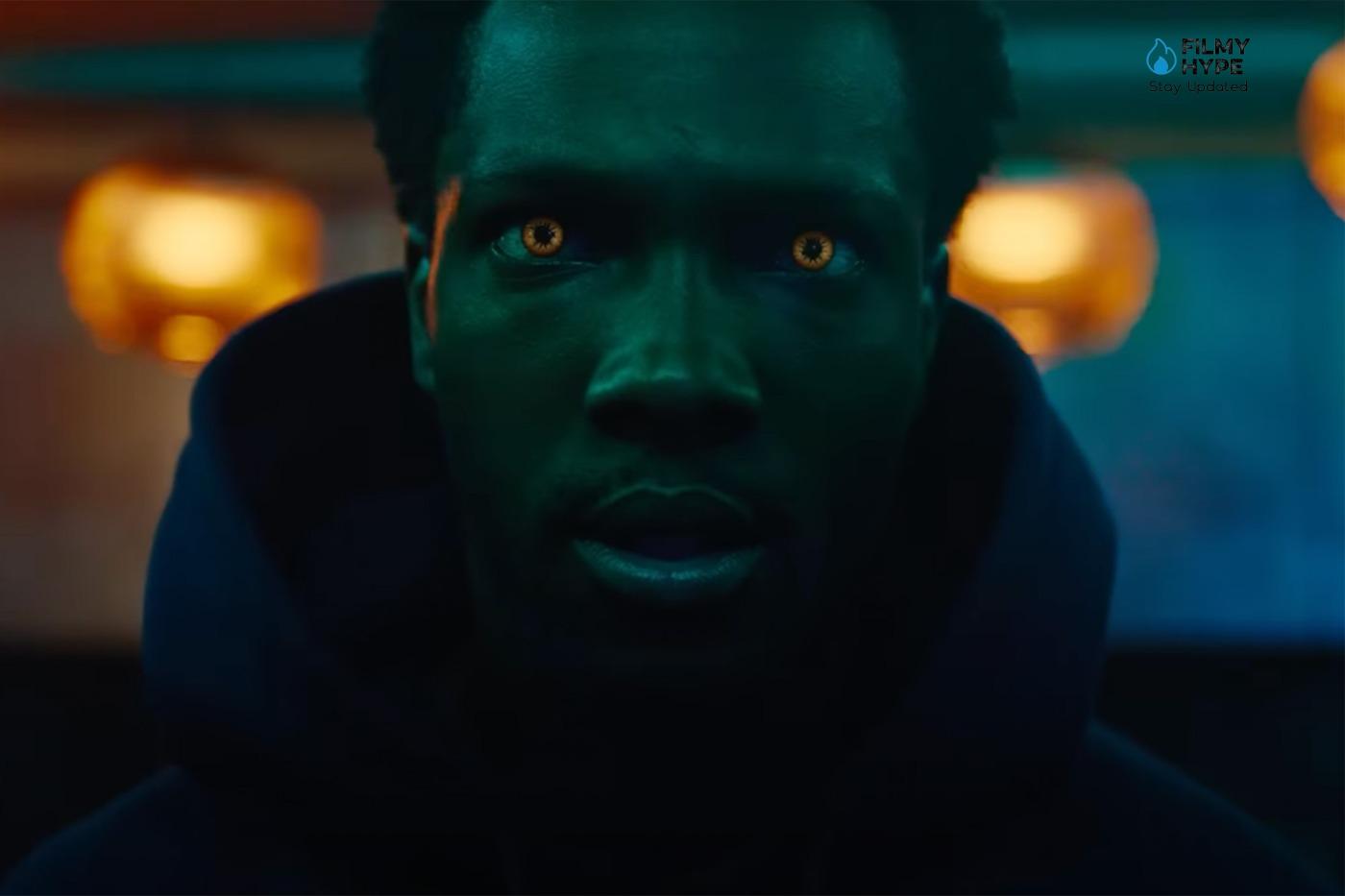
This first season of Supacell leaves many questions unanswered. The first six episodes seem to have been more of a sort of preparation for later developments: all the questions about the center where the mutants are taken, briefly shown here in the first and last episodes, remain open. Consequently, there is no actual clash between the five superheroes and the “evil scientists”, in particular, we have not reached the future moment that Michael sees in the first episode. Everything suggests that the goal of the first season was mainly to introduce the characters and lay the groundwork for a possible continuation. Despite this, Netflix has not yet really committed itself to the matter, neither on the possibility of a second season nor, of course, on the timing of production and distribution.
Another interesting factor in the series is the attention to the shots, especially in the first episodes. The five mutants do not originally know each other, the only thing that seems to unite them beyond their power seems to be the area where they live, South London, and, for some, the criminal Crazy. It is in Crazy’s lair that all of them, except Michael, will meet. Before this, however, there is a tendency to represent a sort of force that attracts them to each other, often making them find themselves side by side, almost by chance. Michael meets Rodney in the first episode, when the latter offers him marijuana, while Michael and Andre are framed in a restaurant sitting at two separate tables, back-to-back. Despite the partially static nature of the plot, due to many unfinished and unresolved story knots, Supacell keeps the audience’s attention steady with the alternation of the character’s daily lives and various action scenes, first between the Taser gang and the rival organizations, and then against the hooded ones.
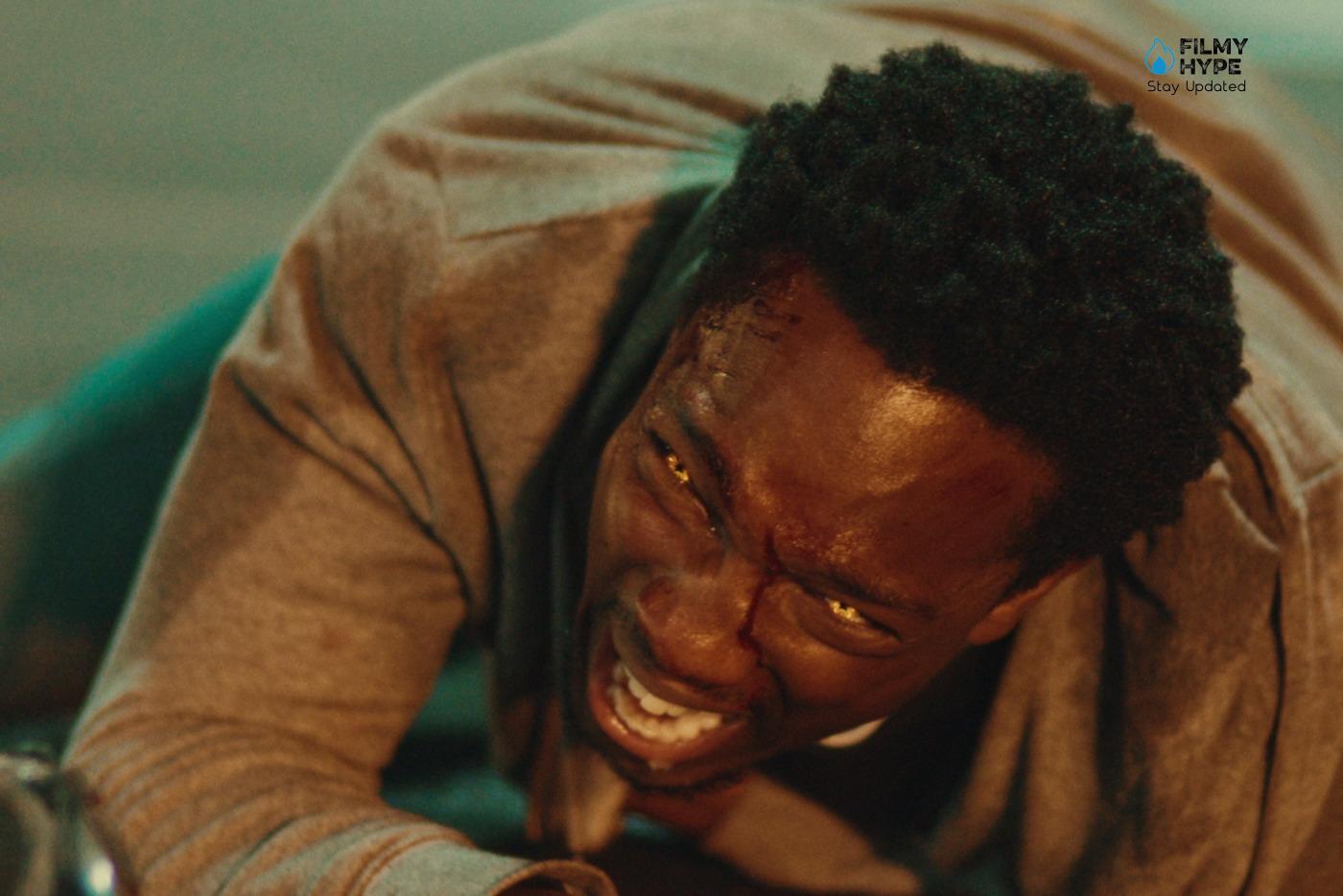
Also, for this reason, in its urban verbosity (the city context is fundamental in Supacell, making us immerse ourselves as much as possible in the street culture linked to the black identity of the protagonists), Rapman’s series has its peculiarities when it focuses on normality overturned by an unexpected change, which overwhelms the existence of the characters. Behind the evolution of an ambitious and fresh script, which looks to the exploration of a story technically open to further developments, there is a TV series firm in its substance and structure: change is precisely the central theme that accompanies the episodes, making superpowers human and not vice versa. If we were talking about context, the powers induced by the characters – some fly, some have brute strength, some are very fast, some are invisible – will enrich the sense of the series in the noble perspective of exploring a group of individuals pushed to the limit, entertaining and exciting when the unexpected superpowers will clash with the daily reality they live, altering an impassive society ready to undermine every principle of freedom and individuality.
Supacell Review: The Last Words
Supacell skillfully balances moments of intense action with an authentic depiction of life in working-class British communities. The series not only respects the conventions of the superhero genre but renews them through a unique social and cultural lens. Who knows, Supacell developed by Rapman could be the series of the moment: good characterization of the characters, a human and urban geography that works, and then the superhero factor that looks at everyday life and not science fiction. An interesting mix that keeps a story of belonging, resistance, and courage focused, capable of entertaining properly, despite the length of the episodes (almost an hour) and the lack of scenic clarity in the action moments.




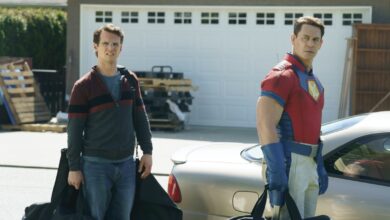


At least this review saw them as British and the movie as a movie and not just as “black superheroes, black movie” and all such rubbish, as other rubbish reviews from probably racist people.
Thanks Bidex